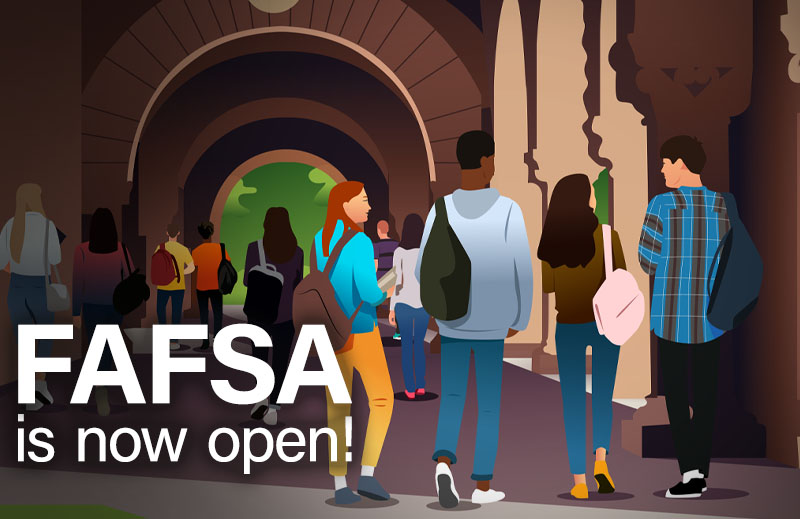FAFSA is officially open - here’s what you need to know
Thursday, October 02, 2025 12:00 AM

Blog Highlights
- The Free Application for Federal Student Aid (FAFSA) officially opened Oct. 1.
- Filling out the FAFSA is the required first step of the financial aid process.
- High school and college students planning to enroll in classes for the 2026-2027 school year should fill out the FAFSA at studentaid.gov.
Get ready to unlock money for college
The FAFSA (Free Application for Federal Student Aid) for the 2026-2027 school year officially opened on Oct. 1, and it’s your ticket to grants, loans, scholarships and work-study opportunities.
High school seniors and current Macomb students who are enrolling in classes next year must submit the FAFSA to secure their financial future.
Here’s what you need to know to make the process smooth and easy.
What is the FAFSA?
The FAFSA is an online form you must submit at studentaid.gov to apply for federal student aid, including grants, work-study funds and loans. It’s a crucial step in securing financial assistance for college.
Why do you need to fill out the FAFSA?
Filling out the FAFSA is the required first step in the financial aid process. Without it, you won’t be eligible for financial aid.
What should you do to prepare for the FAFSA?
Start by gathering important documents such as social security numbers, tax returns and bank statements. Creating a FAFSA ID in advance will save time as well.
What is the IRS Direct Data Exchange?
This is a tool that transfers tax information from the IRS to FAFSA directly, reducing time and mistakes. You’ll find the tool on studentaid.gov while completing your FAFSA.
What is Macomb’s FAFSA code?
Each school is assigned a numerical code that you must include on the FAFSA form. Macomb’s code is 008906.
Take your time before you sign and submit
Before you sign and submit your FAFSA, make sure to review it carefully. This helps to avoid mistakes and increases your chances of receiving financial aid.
Still have questions? View our “FAFSA First” video for more information.
The FAFSA (Free Application for Federal Student Aid) for the 2026-2027 school year officially opened on Oct. 1, and it’s your ticket to grants, loans, scholarships and work-study opportunities.
High school seniors and current Macomb students who are enrolling in classes next year must submit the FAFSA to secure their financial future.
Here’s what you need to know to make the process smooth and easy.
What is the FAFSA?
The FAFSA is an online form you must submit at studentaid.gov to apply for federal student aid, including grants, work-study funds and loans. It’s a crucial step in securing financial assistance for college.
Why do you need to fill out the FAFSA?
Filling out the FAFSA is the required first step in the financial aid process. Without it, you won’t be eligible for financial aid.
What should you do to prepare for the FAFSA?
Start by gathering important documents such as social security numbers, tax returns and bank statements. Creating a FAFSA ID in advance will save time as well.
What is the IRS Direct Data Exchange?
This is a tool that transfers tax information from the IRS to FAFSA directly, reducing time and mistakes. You’ll find the tool on studentaid.gov while completing your FAFSA.
What is Macomb’s FAFSA code?
Each school is assigned a numerical code that you must include on the FAFSA form. Macomb’s code is 008906.
Take your time before you sign and submit
Before you sign and submit your FAFSA, make sure to review it carefully. This helps to avoid mistakes and increases your chances of receiving financial aid.
Still have questions? View our “FAFSA First” video for more information.


